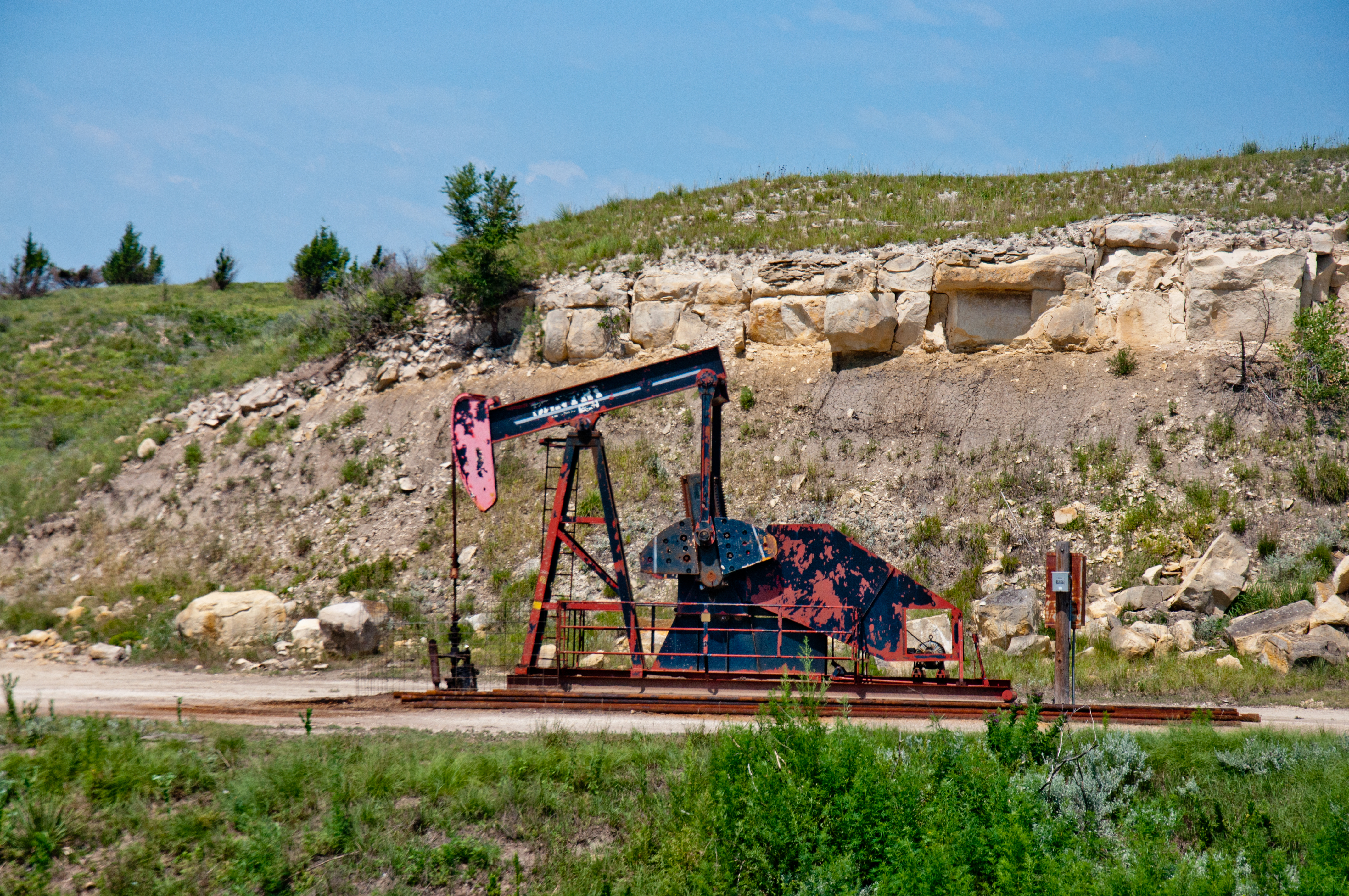By JOHN P. TRETBAR
Kansas Common crude at CHS in McPherson gained a quarter Friday (2/22) to $47.50 per barrel. That’s two dollars more than at the start of the month, and $12 more than the price at the first of the year.
Baker Hughes reported 1,047 active drilling rigs across the U.S. last week, down four oil rigs. Oklahoma’s rig count was down two, while Texas, New Mexico and Colorado each dropped by one rig.
Rig count totals from Independent Oil & Gas Service were unchanged last week, with three active rigs east of Wichita and 26 in Western Kansas. Operators are about to spud one new well in Barton County and one in Russell County.
Regulators approved 15 permits for drilling at new locations across the state last week, three east of Wichita and 12 in Western Kansas. One new permit was filed in Barton County.
Operators reported 26 new well completions last week, 11 in eastern Kansas and 15 west of Wichita. There were completions noted in Barton and Russell counties, but both were dry holes.
Alberta, Canada is preparing a giant oil-by-rail operation to help its oil-sands producers cope with a pipeline crunch. Reuters reports the Canadian province expects a big profit from the venture. Alberta holds the world’s third-largest crude reserves, but has been losing money because of shortages in pipeline takeaway capacity. Premier Rachel Notley has taken numerous steps to turn that around, including mandatory production cuts, and the railroad operation. They will spend roughly $2.8 billion (US) to lease tanker cars and buy service from rail providers. Officials expect to get a $4.48 billion return, or a net profit o $1.7 billion.
Lawmakers in Texas learned that the state agency responsible for plugging abandoned oil and gas wells can’t seal them as quickly as they’re being abandoned. During the last legislative session, regulators said there were around 10,000 such wells in the state, and lawmakers gave them more money to plug them. Observers say the problem is getting worse. Out of 440,000 wells in the state, about 130,000 aren’t producing and will eventually be abandoned.
Lawmakers in North Dakota are considering quite a few new measures for the oil patch. House members approved “Operation Prairie Dog,” a bill that would distribute up to $250 million from oil tax revenue to cities, counties, townships and airports for infrastructure projects throughout North Dakota. The North Dakota Senate opted to keep a provision in oil tax policy that requires companies to pay more taxes when oil prices rise. A bill that sets the groundwork for a new oil tax agreement with three native tribes in North Dakota passed the state Senate Wednesday. It’s projected to send an additional $33 million in oil tax revenue to the tribes. The House approved legislation Thursday that would use money from the voter-approved oil tax savings account to help offset income taxes.
U.S. operators shipped 7,645 tanker cars in petroleum and petroleum products last week, an increase of 17.8%. The Association of American Railroads says the running total so far this year is up 23% over the same period last year. Canada continues to increase its oil-by-rail shipments as well, posting an increase of 6.5% last week, and a 23.5% increase in the running total.
Russia’s third-largest bank has frozen the accounts of Venezuelan state oil company PDVSA. Reuters reports Gazprombank halted transactions with the firm to avoid U.S. sanctions. The Venezuelans have labeled the story “fake news.” The Kremlin has been among Venezuela’s staunchest supporters.
Continental Resources reported annual profits of nearly $1 billion in 2018. The Oklahoma-based shale producer posted net income for the year of $988 million. Company officials say they boosted average daily total production to more than 298-thousand barrels, an increase of 23 percent over the year before. The company reported production in North Dakota’s Bakken shale of more than 183-thousand barrels per day during the last three months of the year.
The Texas oil and gas industry paid more than $14 billion in state and local taxes and state royalties in fiscal year 2018. According to the Texas Oil and Gas Association that’s an increase of 27 percent from fiscal year 2017, and the second-highest total in Texas history. Since 2007 the industry paid over $133 billion in taxes and royalties.
A spike in drilling permit applications, and increases in court challenges, have created a backlog that regulators in Colorado say could take up to three years to clear. At the end of January the Colorado Oil and Gas Conservation Commission had 406 pending applications on their docket. Of those, 30 percent have been protested. It doesn’t help that the COGCC is short one hearing officer, but officials say it would still likely take three years to clear the backlog, even at full staff.
After losing a court fight with the Colorado Oil & Gas Conservation Commission last month, Democrats in the state legislature will try to redefine the commission’s mission in a bill expected soon. The Colorado Springs Gazette reports they hope to place a higher priority on public health and safety. In January, the state’s highest court ruled that under current law, the commission cannot make permitting decisions based solely on health and safety, but must consider other interests. The measure is also likely to give local governments more control over permits, rather than maintaining that oversight at the state level.
The Permian Basin of Texas and New Mexico already leads the nation, and most countries, in crude-oil production. According to the U.S. Energy Information Administration, Permian production will rise above four million barrels per day for the first time in history next month. Already the fastest-growing shale play in the U.S., the Permian is currently producing an average of 3.98 million barrels per day. Next month, EIA predicts that total will rise by 43-thousand barrels per day to 4.024 million. Total U.S. production this year will rise to 12.4 million barrels per day, according to government reports.

